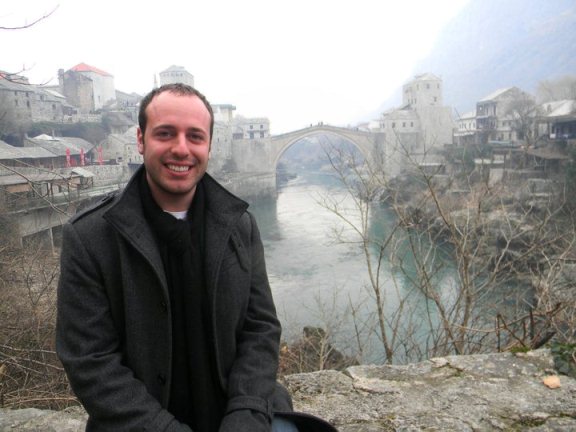What does it mean to live in interesting times and what sort of qualities do they demand of young professionals?
As I concluded my Fulbright English Teaching Assistantship (ETA) in Montenegro, I found myself contemplating these two questions in relation to how I had developed as a young professional and how I intended to use my Fulbright experiences upon returning to the United States.
Fulbright showed me exactly what it means to live in interesting times. Most notably, the program helped me to learn what it’s like to live in a post-communist country navigating the rapid demands of globalization. Assistant teaching English at the University of Montenegro allowed me to hone my intercultural communication skills, learn the basics of another language and develop relationships founded on mutual understanding and respect. I consider these skills to be important for thriving in interesting times and for working with others across cultural, racial and geographic boundaries. I also credit Fulbright for having awakened my calling to pursue a career in international education.
Since returning from Montenegro, I have pursued this calling by enrolling in a master’s degree program in higher education at New York University (NYU) and by becoming an administrator at Pace University’s Office of International Programs and Services. Fulbright expanded my search for graduate programs to those that support international experience as essential to any higher education curriculum. For example, this past March, I had an opportunity to participate in a two-week, global perspectives course on higher education in Turkey through NYU’s Steinhardt School of Culture, Education, and Human Development.
For those applying to the Fulbright U.S. Student Program, I would offer the following two recommendations:
First, get an early start on your personal statement. The personal statement is one page long, so a common pitfall is to think, “Oh, I can easily crank something out a week or two before the deadline.” Avoid this mindset. As I discovered while developing my application essays, they demand a considerable amount of time and effort because you have to ask yourself critical questions about your background, academic interests, qualifications and future aspirations. Remember, applicants are not interviewed on the national level (only by campus committees for those applying through an institution), so the personal statement must be well-written and constructed strategically. This is your only chance to tell the National Screening Committee about who you are and how you came to this point in your life (i.e., why Fulbright?). To help guide and structure your writing, I encourage you to give your personal statement a purpose. This involves creating a “residual message,” or, what I like to think of as a dynamic sentence in the first paragraph summarizing your intent.
Think of it this way, when the National Screening Committee members have finished reading your application, what is the one thing you want them to remember, know, understand or see in your application? It’s a powerful, concrete sentence (deeply rooted in Aristotle’s ethos, pathos and logos) which will reside with your reader.
Second, you should conduct research on your prospective Fulbright country and region, and identify resources and individuals who can offer guidance. I highly recommend checking your prospective host Fulbright Commission’s or U.S. Embassy’s website. Fulbright Commissions and U.S. Embassies are excellent resources for learning about Fulbright priorities, current public diplomacy initiatives, political issues and other hot topics being addressed by U.S. officials and host country governments. Ask yourself: Does your research topic or Fulbright ETA community engagement project align with Fulbright Commission or U.S. Embassy goals, objectives and programs? How might this information be used in your application to communicate that you are knowledgeable about that particular country or region? Check to see if they have a Facebook page and join it!
Overall, you must plan ahead, pay attention to details, and manage your time well. The Fulbright application process will not seem as overwhelming if you stay on top of things.
Photo: Dustin Gee, 2010-2011, Fulbright English Teaching Assistant to Montenegro, in Mostar, Bosnia and Herzegovina, near the Stari Most or “old bridge” over the Nerveta River

